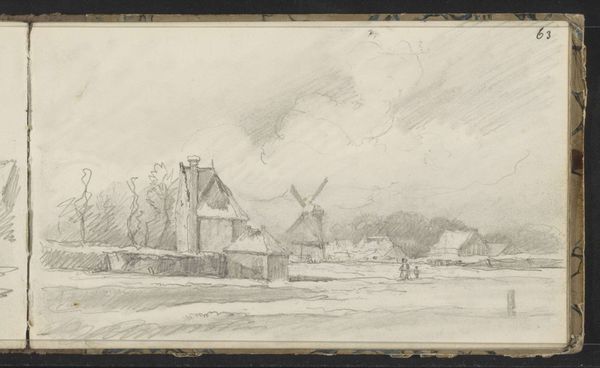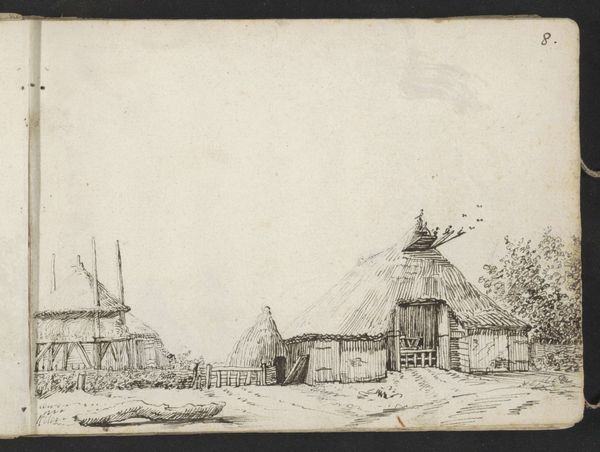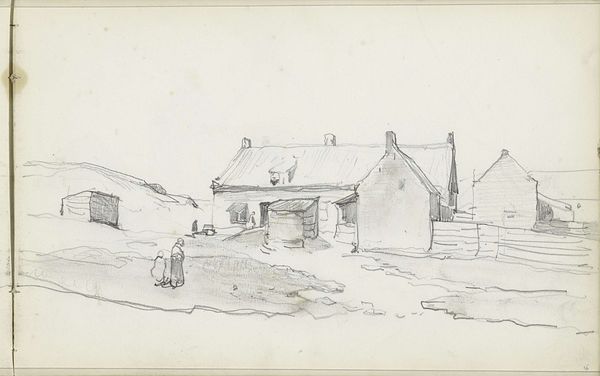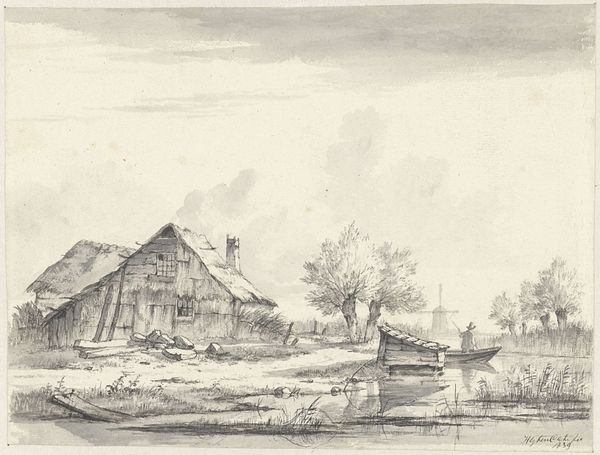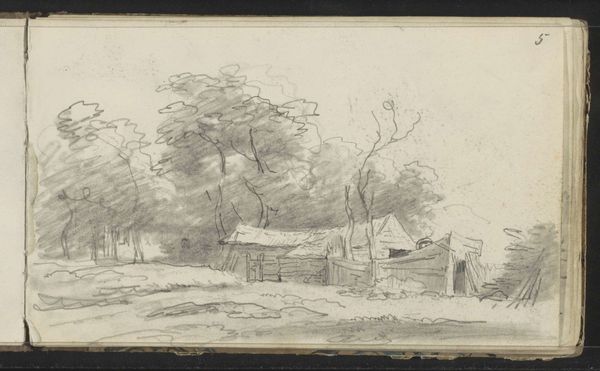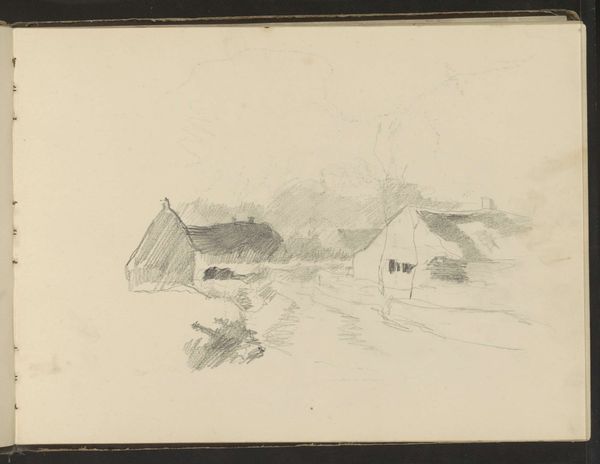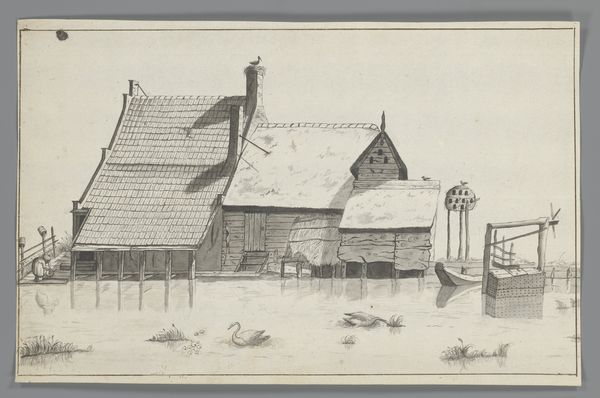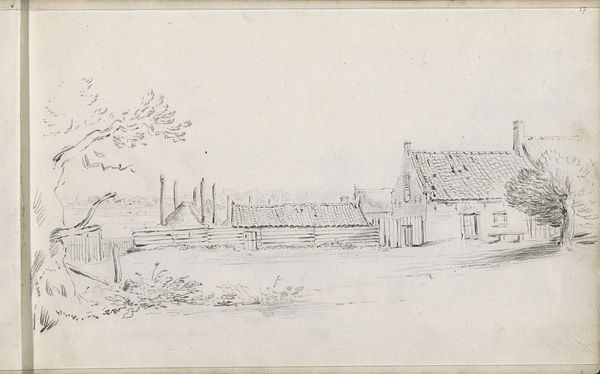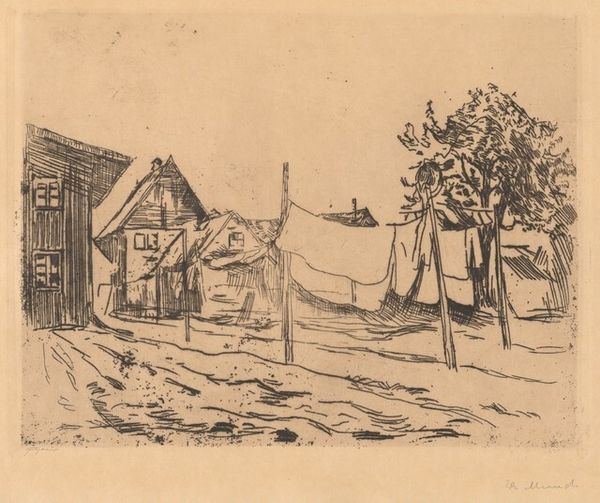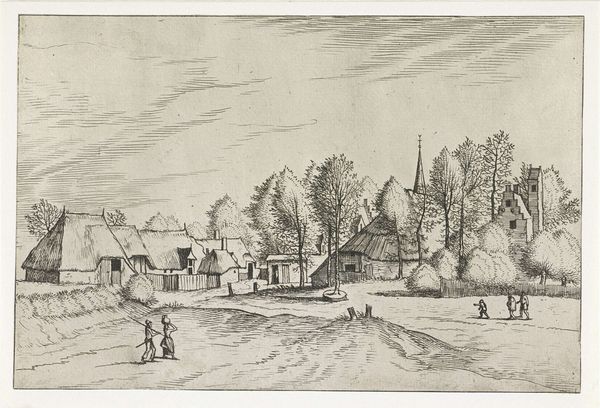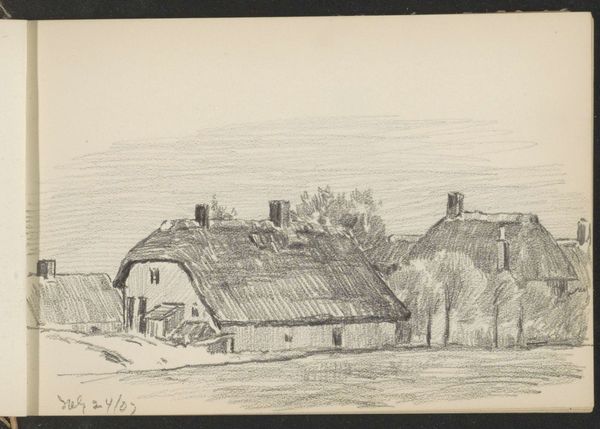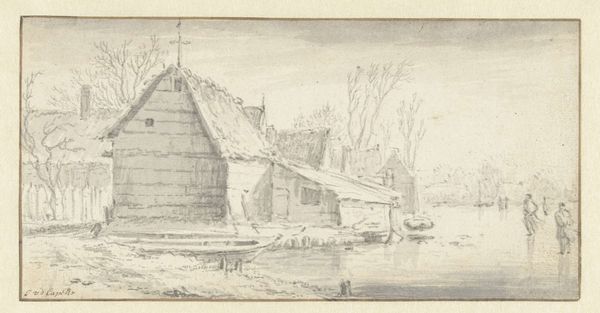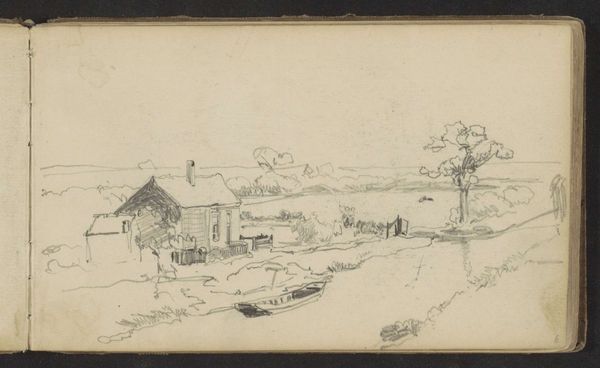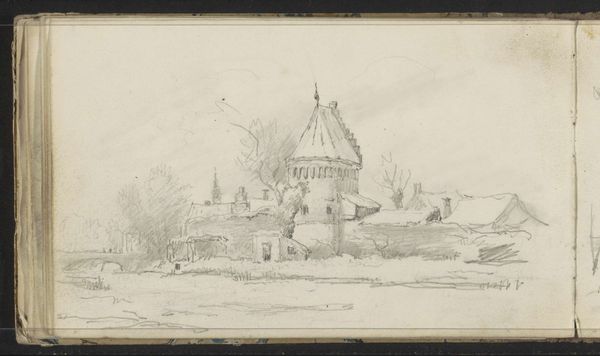
drawing, pencil
#
drawing
#
landscape
#
romanticism
#
pencil
#
cityscape
Copyright: Rijks Museum: Open Domain
Arnoldus Johannes Eymer made this pencil drawing of a River Landscape with a Mill sometime in the first half of the 19th century. It’s a quick sketch, probably made en plein air. But even in its apparent artlessness, we can still perceive how Dutch art institutions were reflecting and shaping national identity in the early 1800s. Consider the imagery: A traditional windmill dominates the scene, a symbol of Dutch ingenuity in water management and agriculture. The presence of the river suggests trade and commerce, vital to the Dutch economy. It’s a composition that reflects the Netherlands’ sense of itself as a hard-working, technologically advanced nation. We might ask: who was the intended audience for Eymer’s drawing? Was it a preparatory sketch for a larger painting commissioned by a wealthy patron? Or was it created for his own pleasure, capturing a nostalgic view of the Dutch countryside? Either way, understanding the social and economic context in which Eymer was working can deepen our appreciation of this seemingly simple landscape. Examining exhibition records and artists' biographies can further illuminate these kinds of questions.
Comments
No comments
Be the first to comment and join the conversation on the ultimate creative platform.
